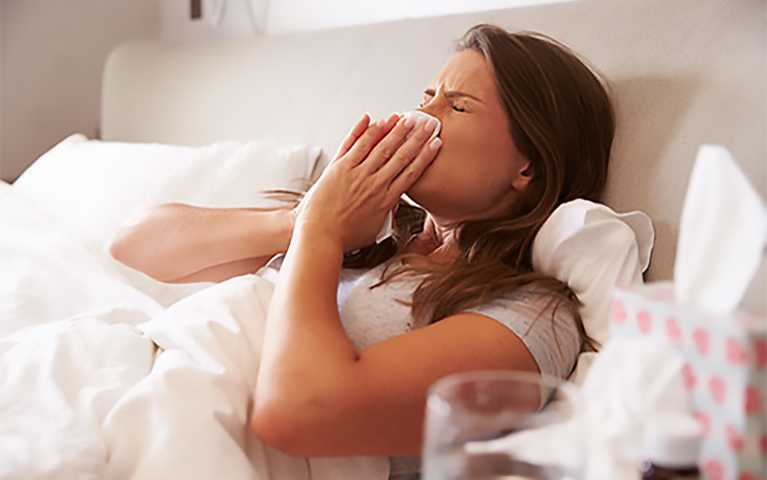It's that time of year again. Flu season. Helpful tips to help you survive the flu. Did you know it can take 2-3 times longer for your body to respond to a flu shot if you're sleep deprived? Read on ...
Nothing can make your winter days and nights as miserable as a bout of flu. Fever, aching muscles, chills, congestion, and unrelenting fatigue are some of the telltale signs of the dreaded infection. Flu season isn't a quickly passing phase. It begins in early October and lasts through April, or even May.
The flu vaccine and a solid dose of sleep combine for a one-two punch to arm yourself against the virus' vicious attack. Here is what you should know about these anti-flu weapons.
Flu Shot and Sleep
The first step in the battle against the flu is getting the flu shot. The vaccine triggers the creation of antibodies that protect you against the virus, Dr. Wendy Sue Swanson, a pediatrician at Seattle Children's Hospital, told Sleep Number. If you then encounter the virus, your immune system employs those at-the-ready antibodies to attack the infiltrator, preventing it from causing a major infection, she said.
But for the shot to work well, you must get enough sleep. If you're sleep-deprived when you get your flu shot, your immune system may take 2-3 times longer to respond and develop protective anti-flu powers. Insomnia may make the vaccine less effective as well.
Other Sleep Benefits
Adequate slumber will undoubtedly keep you healthier this winter. Research shows that people who got five hours of sleep or less each night had nearly twice the risk of catching influenza or pneumonia than those who slept seven to eight hours a night. Another study showed that people who slept less than seven hours per night were three times more likely to get a cold than those who got eight hours of nightly shut-eye. While a cold isn't the flu, it speaks to the way lack of sleep wears down your body's defenses.
Fight the Symptoms
If you do contract the flu, some suggestions for coping:
-
Sleep, sleep and more sleep. A rested body will be much better equipped to fight the virus.
-
Stay home from work or school. The flu is contagious, so you don't want to spread it. And your boss may not take kindly to your midday desk naps.
-
Stay hydrated to thin out the mucus that comes with the flu. The health website WebMD recommends drinking eight cups of liquids (water, juice, tea and so on) per day when you are sick. Avoid coffee, caffeinated tea and alcohol, as these contribute to dehydration.
-
Running a humidifier may help ease congestion and coughing, according to WebMD.
Remember: Prevention is key when battling the virus, so go ahead and slumber your way through flu season. Your immune system will feel the difference.
Want even better sleep before, during or after being sick? Sleepers who routinely use their Sleep Number smart bed features and SleepIQ® technology get almost 100 hours more proven quality sleep per year.*
Like diet and exercise, quality sleep is essential for optimal wellbeing and performance. Because everyone's sleep needs are different, Sleep Number® smart beds sense your movements and automatically adjust firmness, comfort and support to keep you both sleeping comfortably. Find your Sleep Number® setting for your best possible night's sleep.
*Based on internal analysis of sleep sessions assessing sleepers who use multiple features of Sleep Number® products. Claim based on sleepers achieving over 15 more minutes of restful sleep per sleep sessions.
